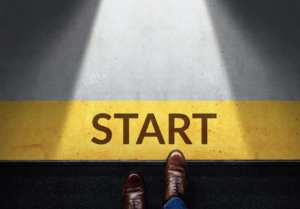Ads
The Australian Senate’s recent decision to pass a world-first social media ban for under-16s has sparked a flurry of reactions and discussions both within the country and around the globe. This groundbreaking legislation aims to hold social media platforms accountable for allowing minors under the age of 16 to create accounts, imposing fines of up to 50 million Australian dollars ($33 million) for violations.
The bill, which was approved by a wide margin in both the Senate and the House, is seen as a significant step towards protecting children from online harm and abuse. Prime Minister Anthony Albanese hailed the legislation as a crucial measure to address growing concerns about internet safety and the well-being of young users.
Under the new law, popular platforms such as TikTok, Facebook, Snapchat, Reddit, X, and Instagram have one year to implement measures to prevent under-16s from accessing their services. Failure to comply with the ban could result in hefty fines, prompting some companies to express concerns about the swift implementation of the legislation.
While the majority of politicians and advocacy groups support the ban as a necessary safeguard for children, there are also critics who worry about its potential unintended consequences. Some argue that the ban could isolate young users, limit their access to valuable online resources, and even push them towards more dangerous corners of the internet.
Opposition Senator David Shoebridge, representing the Greens party, raised concerns that the ban could alienate vulnerable young people who rely on social media for support and connection, especially those in rural and LGBTQI communities. Despite these reservations, the bill received bipartisan support, with legislators emphasizing the responsibility of social media companies to protect underage users.
Health and education services deemed essential, such as YouTube, Messenger Kids, WhatsApp, Kids Helpline, and Google Classroom, will be exempt from the ban. Proponents of the legislation argue that it is a crucial step towards ensuring the safety of children online and holding social media platforms accountable for their actions.
The passing of the social media ban comes after several high-profile cases of online abuse and exploitation, including the tragic death of Sonya Ryan’s daughter Carly, who was murdered by an adult predator posing as a teenager. Ryan, a prominent advocate for online safety, hailed the Senate’s decision as a significant milestone in protecting children from harm.
Wayne Holdsworth, whose son Mac took his own life following an internet extortion scam, expressed his support for the ban and praised the government for taking action to protect minors. Holdsworth’s poignant statement reflects the personal and emotional impact that online harms can have on families and communities.
Despite the government’s efforts to address concerns about children’s online safety, critics argue that the legislation was rushed and lacks sufficient consideration of its potential consequences. Some fear that the ban could infringe on users’ privacy rights and restrict access to valuable online resources for young people.
In response to the legislation, social media platforms such as Meta Platforms (Facebook and Instagram) and Snapchat have expressed reservations about the ban but have pledged to work with authorities to ensure compliance. Critics argue that the ban may not effectively address the root causes of online harms and could lead to unintended negative outcomes.
As the debate over the social media ban continues to unfold, it remains to be seen how the legislation will be implemented and enforced in practice. While the government and advocacy groups are hopeful that the ban will enhance children’s online safety, there are lingering concerns about its potential impact on privacy, freedom of expression, and access to educational resources.
With the passage of this landmark legislation, Australia has taken a bold step towards addressing the complex challenges of online safety and protecting vulnerable young users from harm. The world will be watching to see how this pioneering social media ban unfolds and whether it serves as a model for other countries grappling with similar issues.






